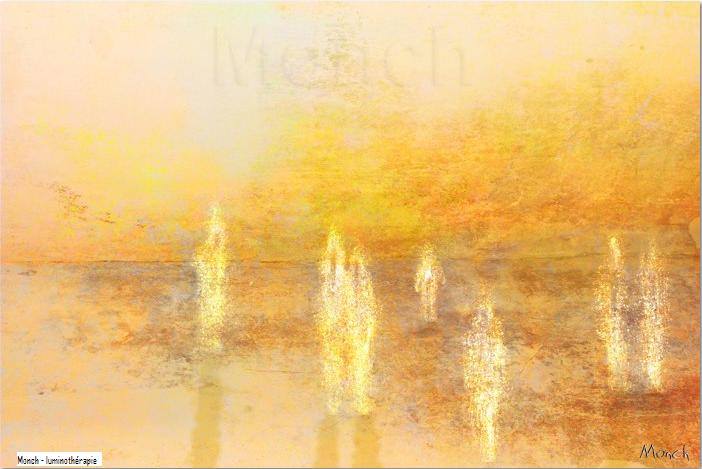Something Wicked This Way Came

In the mid-1990s my family and I were vacationing on the Island of Saint Kitts.
The choice of Saint Kitts was largely mine. My 6th great-grandfather Robert Choppin (died 1688) arrived in Saint Kitts in 1629 as part of the fleet of Sir Thomas Warner (who was one of the first English “settlers” of the Island). Robert is something of a mystery. He was an Englishman, but no records have been found to determine specifically where he came from. The Choppin’s did not stay long, if at all, in Saint Kitts. They quickly settled in Nevis and later relocated to St. Vincent.
We travelled to the part of the island where Thomas Warner had landed along with my ancestor, and we saw several historic sites. On one day, we drove somewhere off the beaten tourist path.
The Island of Saint Kitts is shaped like a chicken drumstick and the narrow end called the South Peninsula is — or was — largely unoccupied and unsettled in the 1990s.
Having gone as far down the drumstick as possible, where the road ended at the summit of a hill, we found a rough unpaved path that had been gouged through the brush by trucks — presumably to reach the bay further down from the hills, and possibly to where some hotel was being contemplated. There was no one anywhere around; the road was empty. From there we descended on foot to reach the pure white sands of this hidden bay.
Saint Kitts and Nevis are home to green vervet monkeys. Not indigenous to the islands, most naturalists, and historians, agree that the monkeys were brought to the Caribbean in the 1600s from Africa and had either escaped or were set free. We had seen these delightful monkeys throughout the islands, always moving, always chattering.
Yet, in this quiet bay, where there were many more monkeys than we had seen congregated elsewhere, they were perched in the trees, eerily motionless, silent, and oddly alert, almost expectant.
The sands were white and clean, and the water was unnaturally still. Nowhere on the island had we seen water so motionless. The bay was shallow, about waist deep for many yards out. It was crystal clear, and hundreds of starfish lay inert on the limpid sandy bottom.
Years later I learned we had stumbled across Shitten Bay. Although now prosaically known as Turtle Beach, it is a popular snorkeling destination.
On old maps, in 1768 the bay was called Arsehole Bay, and then renamed Shitten Bay in 1775. Oral traditions maintain slave ships would come into the bay prior to selling their human cargo in Basseterre, the capital. Once the slaver ships were quietly tucked away in this calm and isolated spot, the slaves would be washed down and cleaned. Their coating of human waste was rinsed away, into the aptly, if horrifically, named bay.
At the time of our visit, we knew nothing of the bay’s baleful and evil past.
But I felt it.
My husband remembers only not wanting to linger. Despite the crystal-clear water and complete privacy, he recalls having safety concerns. There was only one pathway into the bay, no dwellings, or towns anywhere nearby. The seclusion was complete. I agreed with him, although my true reasons were more complex.
Indeed, my feelings were odd and incongruous. I have never forgotten the place or the mounting feeling of dread, of somehow existentially trespassing where we were not wanted.
I recall my feelings deepening from a sense of sorrow to grief or dread, to a crescendo of anguish and woe. What should have been a glorious summer day, with a brilliant sunlit sky, seemed somehow a mockery of what lived in, or haunted, that bay.
If the stories are true — and I have no reason to doubt them — this was a place of profound misery and evil.
After suffering unimaginable anguish of a long voyage in captivity, the enslaved were brought forth from the dreadful confines of the ship's holds. I doubt anyone can conjure their eyes squinting at the brightness of the blistering sun. Once having adjusted to the painful luminosity, contrasting so harshly with the darkness of the hellish hold of the ship, did they turn to gaze out to sea, in the direction of their forever lost homes and family? Did they contemplate suicide, but were unable to complete this final act of independence because the waters of the bay were too shallow? Did they step on prickly starfishes? Were the monkeys chattering or hushed as they were the day I came to the bay?
Did the sores from the shackles on their limbs sting from the salt-water? Was the achingly fresh tang of ocean air now a burning sensation when it should have been refreshingly delicious?
How roughly were they handled by their captors? How exactly were they washed down? Were the women handled lasciviously by the deck hands? Did those men laugh and point and make uncouth remarks while completing their task? How many indignities did the enslaved men suffer? Indignities of the flesh and of the spirit?
So here we came, centuries later, to this place of despondency and despair.
Do I believe that places can store a profound feeling of powerful emotions? Does this particular place, so isolated and so still, continue to resonate with anguish?
I don’t know.
All I do know is that I couldn’t stay and continue to feel the spiritual weight pressing down on what should have been paradise.
Would you like to read other posts? If so, please click the Home Page link below:

You, Dear Reader, are much needed and appreciated.
Everything written requires a reader to make it whole. The writer begins, then you, dear reader, take in the idea and its image, and so become the continuation of its breath. Please subscribe so that my words can breathe. Consider this my hand, reaching out to yours.
